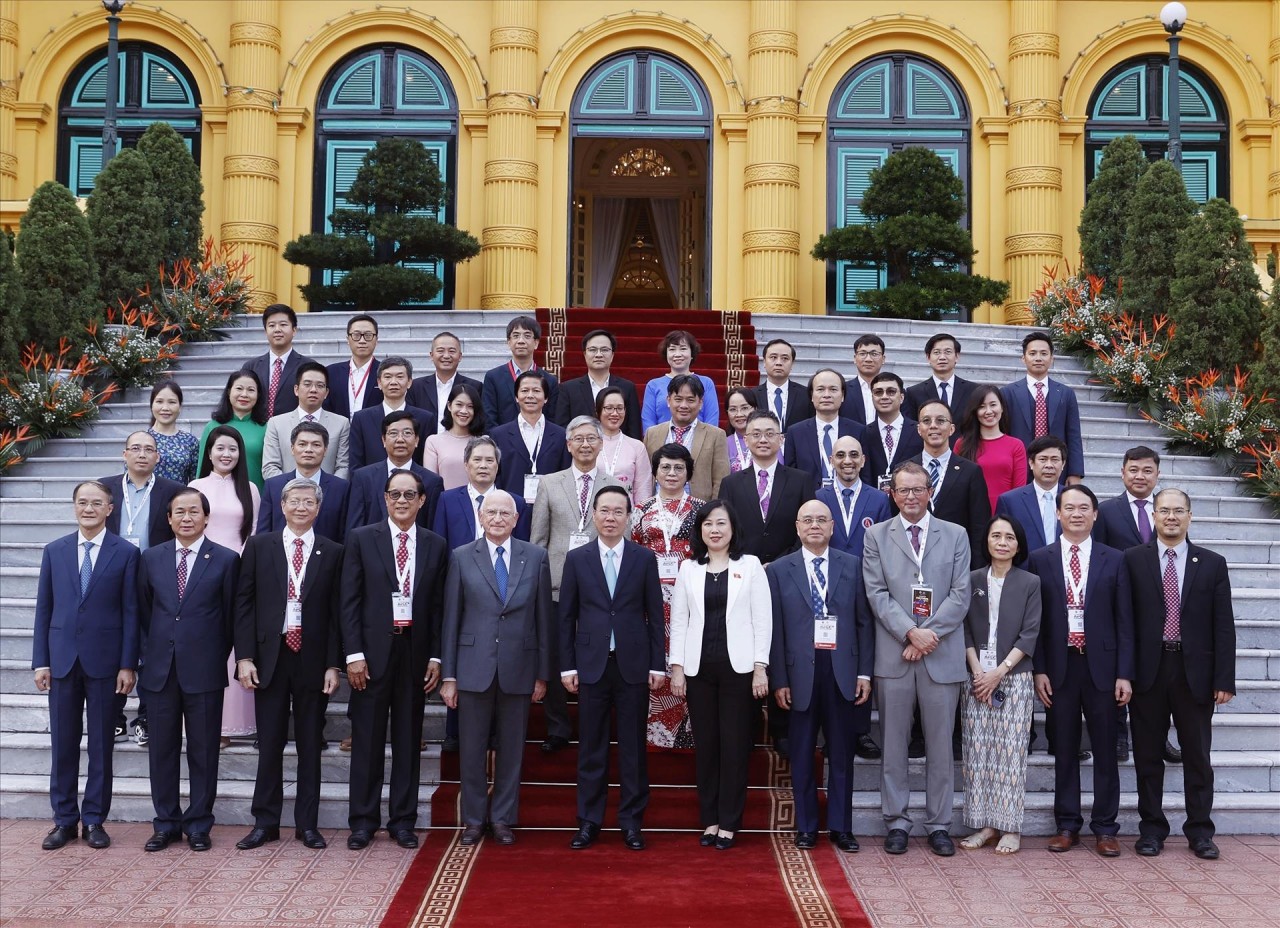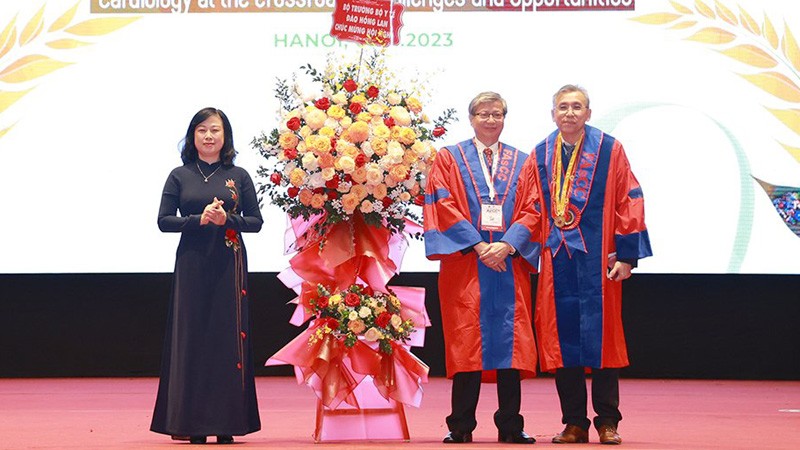President Vo Van Thuong hosted a reception in Hanoi on November 2 for a delegation of 50 leading cardiac experts and scientists from nations worldwide and ASEAN who will attend the 27th ASEAN Federation of Cardiology Congress (AFCC 2023) in the capital city, according to VNA.
President Thuong praised the contributions and dedication of cardiac professors, doctors, and specialists who have made significant advancements in the field of cardiology in Vietnam over the past years.

|
| President Vo Van Thuong meets with delegates to AFCC 2023. Photo: VNA |
He noted that Vietnam, like other countries, is facing changing disease patterns, with non-communicable diseases such as heart diseases on the rise. Therefore, the Vietnamese cardiology sector needs to make greater efforts in early screening and timely detection of diseases. Doctors and specialists should serve as role models in health education, increasing public awareness of self-care, disease prevention, lifestyle change, physical exercise, and healthy eating.
He suggested that the Vietnam National Heart Association should continue to be a gathering place for leading experts and intellectuals in the field and play its role as a professional social organization in public health care. It should also continue providing effective policy counseling, strengthening the grassroots healthcare system, and building an extensive and accessible medical network.
Delegates said the Vietnamese cardiology sector owes its success to the Party and State’s support and a contingent of dedicated doctors, specialists, and scientists.
Foreign delegates emphasized the importance of the Cardiology Federation, which brings together cardiology associations from different countries to work on cardiac health care for the public, with active and important contributions made by the Vietnam National Heart Association.
In their view, countries need to collaborate more closely to prevent and manage cardiac diseases in their populations. Cardiologists should continue improving the quality of cardiac health care services for patients and promoting cardiac health for healthy people, which will help reinforce the achievements made over the years.
The AFCC 2023, themed “Cardiology at the Crossroads: Challenges and Opportunities,” welcomes over 2,000 local and international participants, including 300 leading cardiovascular experts as guest speakers.

|
| Minister of Health Dao Hong Lan presented a flower basket to congratulate the 27th ASEAN Federation of Cardiology Congress on November 3. Photo: NDO |
The event, hosted by the Vietnam National Heart Association, will focus on cardiovascular disease management in the context of multiple co-morbidities, newly advanced interventions and technology, artificial intelligence, telemedicine, and collaboration with other developed foreign partners and countries.
This is an important event for Vietnam’s cardiovascular industry and also a good opportunity for doctors in Vietnam and in the region to exchange and update knowledge and professional skills.
The congress is also an opportunity to spread health messages to the public in the fight against increasing cardiovascular diseases in Vietnam, with the ultimate goal of improving the quality of cardiovascular health care for Vietnamese people.
According to the 2022 Global Burden of Disease report, cardiovascular disease has become the leading cause of death worldwide. Each year, it claims 19.5 million lives, accounting for one-third of deaths from all causes.
A worrying reality is that the incidence and mortality from cardiovascular disease are increasing rapidly in low- and lower-middle-income countries (accounting for 75% of total deaths), including ASEAN countries.
According to data from the World Heart Federation, it is estimated that each year in the entire ASEAN region, about 4 million people die from cardiovascular disease.
In Vietnam alone, statistics from the Ministry of Health show that about 200,000 people die from cardiovascular disease every year, accounting for 33% of deaths. The burden of disease and treatment costs has also increased significantly.
Vietnam is also a country with a high rate of hypertension, with one in four adults having high blood pressure. Meanwhile, high blood pressure increases the risk of death from stroke by four times and the risk of death from cardiovascular disease by three times compared to people without the disease.




